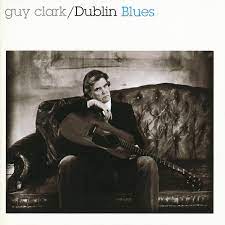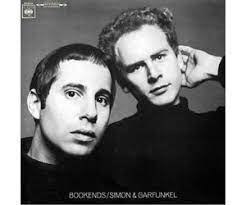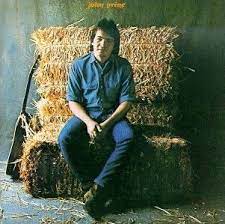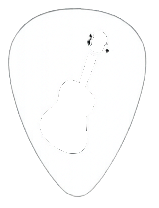Folk Songs With Chords & Demos
On The Acoustic
Here on my folk songs with chords page you'll find over a list of folk artists whose songs I've developed lessons for acoustic guitar. Those artists include:
Bahamas, Citizen Cope, Coven, Elliott Smith, James Blunt, Kitty Daisy & Lewis, Lloyd Cole, Matthew Barber, Mungo Jerry, Rodriguez, Sammy Johns

Bahamas - Already Yours, Be My Witness
Bill Staines - The Fox
Bonnie Prince Billy - I See A Darkness
Bruce Cockburn - Cry Of A Tiny Babe, Indian Wars, Love Loves You Too, Mighty Trucks Of Midnight, The Whole Night Sky, Wondering Where The Lions Are
Charlie Winston - Little Hobo
Chris De Burgh - A Spaceman Came Travelling, Borderline, Don't Pay The Ferryman, Lady In Red, Seven Bridgezs
Citizen Cope - Sideways
Coven - One Tin Soldier
Elliott Smith - Waltz #2
James Blunt - You're Beautiful
Jason Isbell - Alabama Pines, Cover Me Up, Last Of My Kind, Relatively Easy
Joni Mitchell - Big Yellow Taxi
Kitty, Daisy & Lewis - Going Up The Country, Messin With My Life
Lloyd Cole - Famous Blue Raincoat, Perfect Blue
Matthew Barber - Sleep Please Come To Me
Michael Kiwanuka - Cold Little Heart
Mungo Jerry - In The Summertime, She Rowed
Rodriguez - I Wonder
Royal Wood - One Of You
Sammy John - Chevy Van
Steve Goodman - How Much Tequila Did I Drink Last Night, The 20th Century Is Almost Over, The Dutchman, You Never Even Called Me By My Name, You're The One I Love
Townes Van Zandt - Be Here To Love Me, Come Tomorrow, Don't You Take It Too Bad. If I Needed You, Snake Mountain Blues, Tecumseh Valley
Folk Songs With Chords
Demo, Lyrics, Tutorials
Bahamas Songs

Already Yours is from the 2009 album entitled "Pink Strat".
There were no singles from this album and the album itself did not chart on the folk scene.
Bahamas is the stage name of the Canadian musician Afie Jurvanen. He is known for his folk-infused indie rock and soulful sound. Afie Jurvanen adopted the stage name "Bahamas" in 2009, taking inspiration from the name of the country where he had spent some time. Bahamas' music is characterized by his warm, smooth vocals, introspective lyrics, and intricate guitar work.
Bahamas has released several albums throughout his career, including "Pink Strat" (2009), "Barchords" (2012), "Bahamas Is Afie" (2014), and "Earthtones" (2018). His music has received critical acclaim and has garnered him a dedicated fanbase. Some of his well-known songs include "Lost in the Light," "All the Time," and "Stronger Than That."
Overall, Bahamas' music is often described as soulful, melodic, and intimate, and he has established himself as a respected singer-songwriter in the indie music scene.
Jump To Top
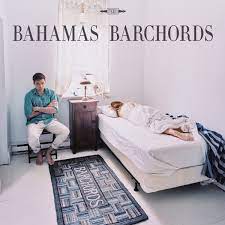
Be My Witness is a track from the 2012 album from Bahamas called "Barchords". There were two singles released from this album but this song was not one of them.
The album itself ranked $14 in the US.
Afie Jurvanan (Bahamas) is originally from Toronto but moved to my home province of Nova Scotia in 2018 with his wife and two children and presumably still resides there.
Jump To Top
Bill Staines Songs
The Fox ... info soon.
Jump To Top
Bonnie Prince Billy Songs
I See A Darkness ... info soon.
Chords & Lyrics
Jump To Top
Bruce Cockburn Songs
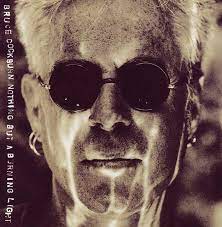
Cry of a Tiny Babe can be found on the album "Nothing But a Burning Light," released in 1991. The song was written by Bruce Cockburn and was not released as a single, but it received significant critical acclaim and became a fan favorite.
"Cry of a Tiny Babe" is a powerful song that draws upon biblical references and explores the themes of justice, oppression, and hope. It references the story of the birth of Jesus and connects it to contemporary social and political issues, emphasizing the need for compassion and the struggle for justice.
There is no official music video for this track.
Jump To Top
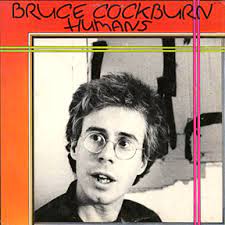
Indian Wars hails from the album "Humans," which was released in 1980. Bruce Cockburn also wrote this number which also was not released as a single, but it remains a notable and critically acclaimed song in Cockburn's discography.
The song addresses the history of colonialism, the mistreatment of Indigenous peoples, and the ongoing struggles they face. The song reflects on the devastating effects of colonization and the resilience of Indigenous communities, urging listeners to acknowledge and confront this history.
There is no official music video for "Indian Wars."
Jump To To
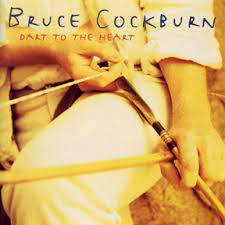
Love Loves You Too can be found on the album "Dart to the Heart," released in 1994. This tune was written by Bruce Cockburn and was not released as a single, but it is a notable track from the album.
"Love Loves You Too" is a reflective and introspective song that explores the complexities of love and relationships. The lyrics delve into the various dimensions of love, including its joys, challenges, and transformative power. It suggests that love has its own agency and capacity to shape and influence our lives.
There is no official music video for "Love Loves You Too."
Jump To Top
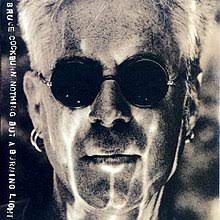
Mighty Trucks of Midnight is a track from the album "Nothing But a Burning Light," released in 1991 and was written by Bruce Cockburn.
The song was not released as a single, it received significant attention and acclaim as a powerful and evocative song. "Mighty Trucks of Midnight" is a socially and politically charged song that critiques the impact of globalization and the power dynamics of the modern world. It explores themes of economic disparity, environmental degradation, and the loss of cultural diversity. The song challenges the destructive forces at play in contemporary society and calls for awareness and action.
There is no official music video for this song.
Jump To Top
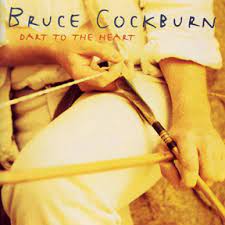
The Whole Night Sky is a song from the album "Dart to the Heart," released in 1994 and was written by Bruce Cockburn.
The song was not released as a single but it is regarded as one of the standout tracks on the album.
"The Whole Night Sky" is a metaphorical and introspective song that reflects on the complexities of human emotions and relationships. The lyrics explore themes of longing, desire, and the search for connection.
There is no official music video for "The Whole Night Sky."
Jump To Top
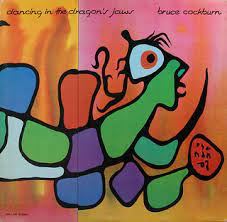
Wondering Where the Lions Are can be found on the album "Dancing in the Dragon's Jaws," released in 1979 and was also written by Bruce Cockburn.
This number was released as a single in 1979 and became one of Cockburn's most successful songs. It reached number 21 on the Billboard Hot 100 chart in the United States. \
The track is a hopeful and optimistic
song that speaks to the human desire for peace and harmony. It reflects
on the uncertainty and turmoil of the world while maintaining a sense of
faith and wonder.
There is no official music video for "Wondering Where the Lions Are." However, there are live performances of the song available.
Jump To Top
Charlie Winston Songs
Like A Hobo ... info soon.
Chords & Lyrics
Jump To Top
Chris De Burgh Songs
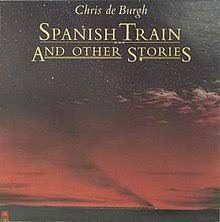
A Spaceman Came Traveling is a song by Chris de Burgh that came out in 1975 on his album "Spanish Train and Other Stories." It's a Christmas-themed song with a twist of science fiction, and it's like a mix of folk, pop, and rock music.
The song tells the story of an alien visitor who comes to Earth in a spaceship and watches what's happening during Christmas from above. The lyrics talk about the spaceman's view of the nativity story and how it connects to the hope for peace on Earth, just like the birth of Jesus Christ.
In Ireland, the single reached #1 on the charts, which means it was a big hit there!
Jump To Top
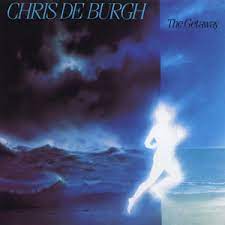
Borderline is a song by Chris de Burgh from his album "The Getaway," which came out in 1982. It's a romantic song about a relationship that's on the edge, where the singer is torn between wanting to stay and feeling tempted to leave. The lyrics talk about the struggles and conflicts that can happen in a relationship when it faces challenges and uncertainties.
"Borderline" has Chris de Burgh's melodic voice, with piano and guitar making a soft rock/pop sound. The song's lyrics and Chris de Burgh's heartfelt singing have made it really popular among his fans, and people like it for its emotional storytelling and music.
It's also one of the standout tracks from the "The Getaway" album, which is known as one of Chris de Burgh's successful albums. In Ireland, the single reached #12 on the charts.
Jump To Top
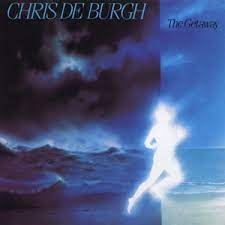
Don't Pay The Ferryman was one of five singles from DeBurgh's 1982 album called The Getaway and this track was released in 1982.
"Don't Pay the Ferryman" has been a popular song among Chris de Burgh's fans, and it's considered one of his well-known hits. It's a song that captures the imagination with its supernatural theme and exciting story.
This was the highest charting of the five singles peaking at #5 in Australia, #9 in Ireland and #34 in the US.
Jump To Top
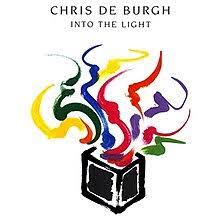
Lady In Red was Chris De Burghs most successful single when it was released as a single back in 1986. It's a romantic ballad that tells the story of a guy who falls in love with a girl he sees at a party wearing a red dress. The lyrics talk about how he's really taken by her beauty and how he feels when he's around her.
"Lady in Red" did really well on the charts, reaching high positions in many countries. It's considered one of Chris De Burgh's most famous songs and is often associated with his music. People really like it because of its heartfelt lyrics and emotional performance, and it's a favorite among his fans because of its romantic theme and catchy melody.
In fact, "Lady in Red" hit #1 in several countries and made it to the top 10 in a few others. It was a big success when it came out and is still remembered as one of Chris De Burgh's most successful singles
Jump To Top
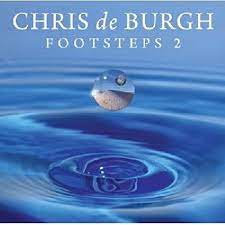
Seven Bridges is a track from DeBurgh's 2011 album Footsteps 2 and
is an original song written by De Burgh himself.
It's a song about a man who is reflecting on his life and the choices he has made. The lyrics describe the man's journey as he crosses seven bridges, which symbolize different stages of his life or challenges he has faced.
"Seven Bridges" explores themes of
self-reflection, introspection, and the passage of time. It's a song
that encourages listeners to reflect on their own lives and the choices
they make along the way. The song's heartfelt lyrics and Chris de
Burgh's emotive performance have made it a favorite among his fans.
The track however was never released as a single.
Jump To Top
Citizen Cope Songs
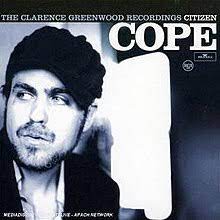
Sideways was never released as a single to my knowledge but does feature Carlos Santana on the track.
It can be found on the album "The Clarence Greenwood Recordings" from 2004.
I play this one with a down down up down up and repeat rhythm pattern in standard tuning and no lead. For chords play a Em, D, Em/Eb and an Am.
Jump To Top
Coven Songs
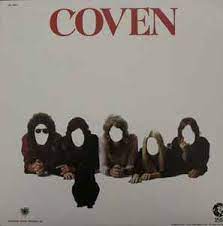
One Tin Soldier hails from the movie "Billy Jack" if anyone remembers that film from the Drive In days. Song was written by Canadians Dennis Lambert and Brian Potter who first recorded the song in 1969 as part of the group The Original Caste.
The song became more popular however in 1971 with a release by the group "Coven", whose version as I mentioned was part of the soundtrack for the movie Billy Jack. Skeeter Davis also recorded the song in 1972.
I play this one with a capo 2nd fret in standard tuning with a down down up down up down up and repeat rhythm pattern. Some lead blended into the rhythm as you play the chords C, G6, Am, Am/F, F, Dm7, Gsus and an Em.
Jump To Top
Elliott Smith Songs
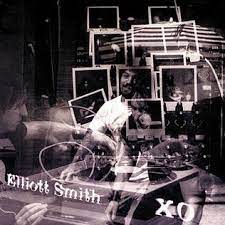
Waltz #2 is from Elliott Smith's alum "X0" which was released in 1998. It was the first single from the album but it did not chart in the US.
In the UK the song reached #52 on the chart.
I play a capo 3rd fret for this one in standard tuning with the chords Em, D, C, G6, Am/C ,G, G6#11#3, Gb, B7, Am and a D/Gb. Some riffs in the rhythm which is a down down up down up and repeat pattern.
Jump To Top
James Blunt Songs
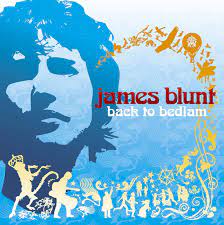
You're Beautiful is a track from James Blunts debut album from 2004 Back To Bedlam.
This song was a monster hit for Blunt reaching #1 in Canada, the US, the UK and #2 in Australia.
Jump To Top
Jason Isbell Songs
Alabama Pines ... info soon.
Jump To Top
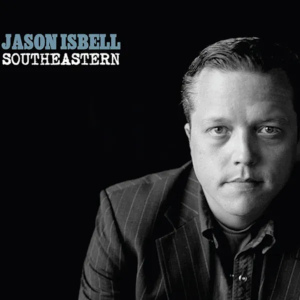
Cover Me Up is a track from Jason Isbell's 2013 album Southeastern.This song won in 2014 for the Americana Music Honours And Awards.
The song was never released as a single.
I play this one with a capo first fret and in drop D tuning. For rhythm play a down down up down up and repeat pattern. A small picking break here with the chords D, G, Em and Bm.
Chords & Lyrics
Jump To Top
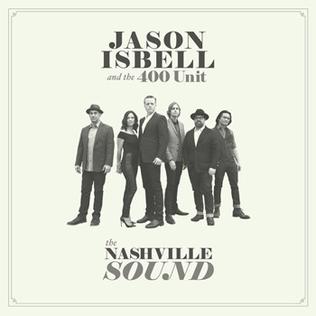
Last Of My Kind is a track from Jason's 2017 album The Nashville Sound. The album was #1 in several genres but no singles were released from this album. In fact Jason Isbell has only released on single during his entire career.
Original key here is with a capo 2nd fret putting you in the key of A but it's a bit high there so I'm playing a G, C/G, G7, C, D, Em and an Am. This one has a steady root down up root up down up rhythm pattern and the lead in this is at the very end of the song in standard tuning.
Jump To Top
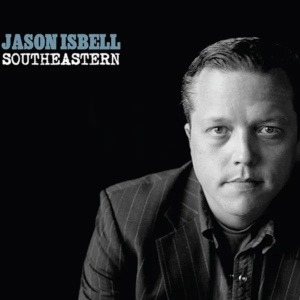
Relatively Easy also hails from his 2011 album Southeastern.
This song was never released as a single.
The rhythm here is a down down up down up down up mixed in with some steady up and down shuffle when playing a few riffs. No lead here as you move through the chords D, G, Bm, A, A7sus and an A7 i standard tuning.
Jump To Top
Joni Mitchell Songs
Big Yellow Taxi .. info soon.
I play a capo 2nd fret here with a simple down up down up rhythm pattern. Some lead required with the chords D, G and A.
Jump To Top
Kitty, Daisy & Lewis Songs
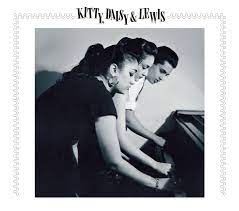
Going Up The Country is a track from the debut album of Kitty Daisy and Lewis from 2008.
Kitty, Daisy & Lewis is a British music group consisting of
siblings Kitty Durham, Daisy Durham, and Lewis Durham.
The group released their self-titled debut album, "Kitty, Daisy & Lewis," in 2008, featuring a mix of original compositions and covers of classic songs.
Over the
years, Kitty, Daisy & Lewis have continued to release albums,
including "Smoking in Heaven" (2011) and "The Third" (2015).
Jump To Top
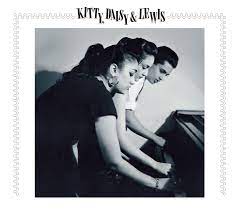
Messing With My Life is also a track from the debut album of Kitty Daisy and Lewis from 2008.
This song was never released as a single as it was more or less a warm-up song the trio would do before going on stage. But they decided to record it as a track for their debut album.
Jump To Top
Lloyd Cole Songs
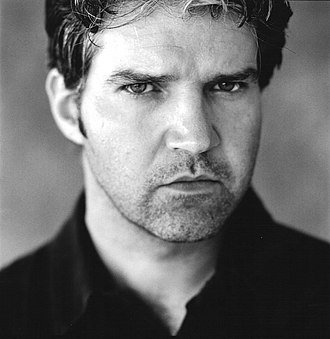
Famous Blue Raincoat is actually a song written and performed by Leonard Cohen, a Canadian singer-songwriter. The song was released on Cohen's 1971 album, "Songs of Love and Hate."
"Famous Blue Raincoat" is a renowned and highly regarded song known for its poetic and introspective lyrics. It tells a complex narrative through a series of letters, exploring themes of love, betrayal, and regret. The song's melancholic tone, coupled with Cohen's deep and distinctive vocals, contributes to its emotional impact.
While "Famous Blue Raincoat" is not a song by Lloyd Cole, he has performed it many times in concert, but to my knowledge never recorded the song for any album. it is worth noting that many artists have covered the song over the years, given its enduring popularity and lyrical depth. These covers have contributed to the song's broader recognition and continued resonance in the music community.
Chords & Lyrics
Jump To Top
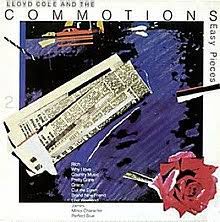
Perfect Blue is a track from 1985 from Lloyd Cole & The Commotions and is featured on their second studio album, "Easy Pieces," released in 1985.
"Perfect Blue" is a track that showcases the band's jangly guitar-driven sound and Lloyd Cole's distinct vocals. The song presents introspective lyrics with a touch of melancholy, exploring themes of longing and reflection. It has a wistful and atmospheric quality that captures the band's signature style.
While "Perfect Blue" wasn't released as a single, it remains a fan favorite and contributes to the overall depth and charm of the "Easy Pieces" album. The album also includes other notable tracks such as "Brand New Friend" and "Cut Me Down," which helped establish Lloyd Cole and the Commotions as influential figures in the indie pop/rock scene of the 1980s.
Chords & Lyrics
Jump To Top
Matthew Barber Songs
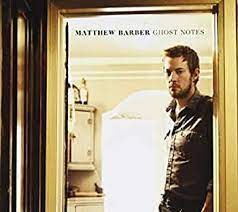
Sleep Please Come To Me is a song recorded by Matthew Barber from his 2008 album "Ghost Notes" .
I'm not sure if the track was ever released as a single.
Chords & Lyrics
Jump To Top
Michael Kiwanuka Songs
Cold Little Heart ... info soon
Jump To Tops
Mungo Jerry Songs
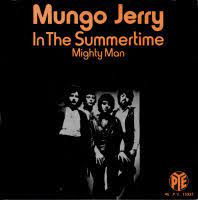
In The Summertime is from Mungo Jerry, a British rock and folk band formed in 1970. They are best known for their hit song "In the Summertime," which became a global success and remains their signature song.
Mungo Jerry was
fronted by the singer-songwriter and guitarist Ray Dorset, who often
goes by the stage name Mungo Jerry himself.
"In the Summertime," released in 1970, became a chart-topping hit in several countries and has since become an enduring summer anthem.
Mungo Jerry released several other songs and albums throughout the 1970s, including tracks like "Baby Jump," "Lady Rose," and "Alright, Alright, Alright." However, none achieved the same level of commercial success as "In the Summertime."
Chords & Lyrics
Jump To Top
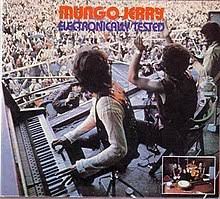
She Rowed is a track by Mungo Jerry from their album "Electronically Tested," released in 1971.
"She Rowed" is a bluesy and folk-infused song with a lively and catchy rhythm. It features Mungo Jerry's characteristic blend of acoustic guitar, harmonica, and Ray Dorset's distinctive vocals. The song tells a story about a woman rowing a boat and the singer's admiration for her.
While "She Rowed" did not achieve the same level of commercial success as their hit "In the Summertime," it has been appreciated by fans of Mungo Jerry and is often included in their live performances and compilations.
Mungo Jerry's music, including "She Rowed," embodies their signature sound of combining various genres and delivering catchy and enjoyable songs that capture the spirit of their time.
Chords & Lyrics
Jump To Top
Rodriguez Songs
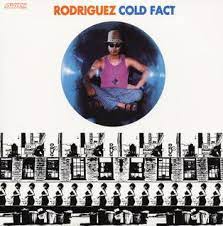
I Wonder is a song that can be found on the debut album from Rodriguez from 1970 called "Cold Fact".
Rodriguez, whose full name is Sixto Diaz Rodriguez, is an American singer-songwriter. He was born on July 10, 1942, in Detroit, Michigan.
He gained recognition and a cult following in the late 1960s and early 1970s with his folk rock and psychedelic folk sound. He released two albums during that time: "Cold Fact" in 1970 and "Coming from Reality" in 1971.
However, despite critical acclaim, his music did not achieve commercial success in the United States.
Chords & Lyrics
Jump To Top
Royal Wood Songs
One Of You ... info soon.
Chord sheet and video lesson in the zip file below.
Sammy Johns Songs
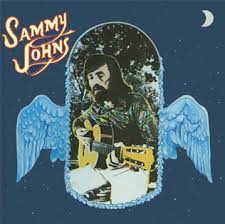
Chevy Van was written by Sammy Johns, who was an American singer-songwriter and was active primarily in the 1970s and early 1980s. He was born on February 7, 1946, in Charlotte, North Carolina, and passed away on January 4, 2013.
His best known song was his hit single "Chevy Van," released in 1975. The song became his signature hit, reaching number five on the Billboard Hot 100 chart and achieving gold certification.
While "Chevy Van" was his most successful song, Sammy Johns released several other albums during his career. Some of his other notable songs include "Rag Doll" and "Early Morning Love." However, he did not achieve the same level of commercial success as he did with "Chevy Van."
Jump To Top
Steve Goodman Songs
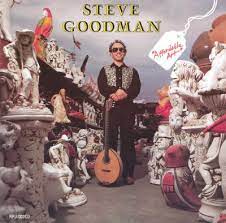
How Much Tequila Did I Drink Last Night is a humorous and reflective tune co-written by Steve Goodman and the renowned folk artist John Prine. This delightful song can be found on Steve Goodman's 1983 album, "Affordable Art."
While the song didn't make a significant impact on the music charts, it resonated with those who appreciated Goodman's and Prine's unique brand of wit and storytelling.
"How Much Tequila Did I Drink Last Night" has
been performed by various artists over the years, further demonstrating
the song's enduring appeal.
Play this one in standard tuning with a down up down up down up and repeat rhythm pattern. A bit of picking here with the chords G, C, D, D7 and G7.
Tutorial No Longer Available
Jump To Top
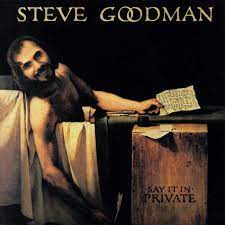
The 20th Century Is Almost Over is a thought-provoking and reflective song by Steve Goodman, featured on his 1977 album "Say It In Private." This song was significant in Goodman's career and marked a departure from his more humorous and lighthearted tunes.
While "The 20th Century Is Almost Over" didn't chart on mainstream music charts, it resonated with those who appreciated Goodman's ability to convey profound ideas through his music.
The song explored themes of change, the passing of time, and the uncertainty of the future, reflecting the broader social and cultural context of the late 1970s.
Over the years, the song has remained a notable part of Steve Goodman's catalog, appreciated for its introspective and contemplative qualities.
Only a G, C and D chord in this one in standard tuning and no picking required. For rhythm play a root down up root up down up and repeat pattern.
Jump To Top
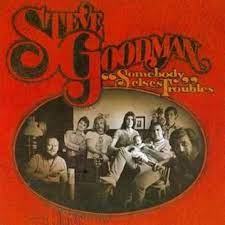
The Dutchman is a poignant and emotive song that Steve Goodman covered in 1968. It was later included on his 1972 album "Somebody Else's Troubles." The song, originally written by Michael Peter Smith, is a beautiful example of Goodman's ability to interpret and deliver heartfelt folk music.
Although "The Dutchman" didn't chart on mainstream music charts, it remains a beloved and cherished piece of Goodman's catalog.
I play a capo 5th fret on this one with a root up down up root up down up and repeat rhythm pattern. No picking as you play through the chords G, Am, D7, Em, Bm and an A#.
Jump To Top
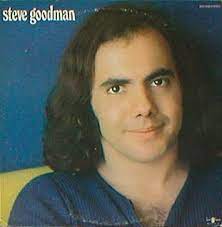
You Never Even Called Me By Man Name is a song covered by Steve Goodman on his 1971 self-titled album, "Steve Goodman."
Originally written by John Prine and Steve Goodman's close friend, David Allan Coe, the song is a humorous and self-deprecating country tune that became a staple in Goodman's repertoire.
While the song didn't achieve widespread chart success, it became a fan favorite and is known for its clever and playful lyrics. The song's humor and storytelling resonated with audiences who appreciated its lighthearted approach to country music.
Over the years, "You Never Even Called Me By My
Name" has been celebrated for its witty lyrics and has been covered by
various artists, further demonstrating its appeal.
This one has a bit of picking in standard tuning with the chords G, D, G7, D7, C, E7, E, A and an A7. Play a root down up root up down up and repeat rhythm pattern.
Jump To Top
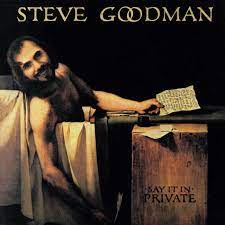
You're The Girl I Love is a charming song by Steve Goodman, featured on his 1977 album "Say It In Private." The song reflects Goodman's ability to blend heartwarming melodies and sincere lyrics, which have become a hallmark of his songwriting.
While "You're The Girl I Love" may not have charted on mainstream music charts because it was never released as a single, it has remained a cherished part of Steve Goodman's catalog, appreciated by those who are drawn to his soulful and affectionate storytelling through music.
Some picking in this one with the three chords G, C and D in standard tuning. Play a root down up root up down up and repeat rhythm pattern.
Jump To Top
Townes Van Zandt Songs
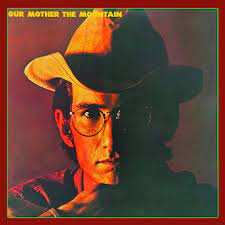
Be Here to Love Me by Townes Van Zandt was released in 1969 as the title track of Van Zandt's second studio album, "Our Mother the Mountain".
The song's sparse acoustic guitar arrangement and Van Zandt's soulful, emotive vocals add to its emotional impact.
"Be Here to Love Me" has been covered by various artists over the years, including Norah Jones, Kathleen Edwards, and Steve Earle, among others, further attesting to its enduring appeal. The song is often regarded as one of Van Zandt's signature works and is recognized as a classic in the singer-songwriter canon.
Despite Townes Van Zandt's tragic and troubled life, his music continues to resonate with audiences who appreciate his poetic lyrics, unique voice, and emotional authenticity.
Jump To Top
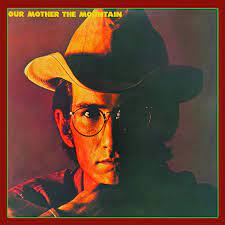
Come Tomorrow hails from his 1969 album "Our Mother the Mountain," which is considered one of his classic albums.
"Come Tomorrow" a soul-stirring and introspective composition that reflects Van Zandt's trademark style of deeply personal and emotionally raw songwriting. It features Van Zandt's evocative lyrics, poetic imagery, and soulful vocals, accompanied by his intricate fingerpicking guitar style. The song's bittersweet melody and melancholic tone create a sense of longing and reflection.
Lyrically,
"Come Tomorrow" touches on themes of love, loss, and existential
contemplation. The lyrics depict a sense of yearning for a better future
while acknowledging the transient and unpredictable nature of life.
"Come Tomorrow" has been covered by several artists, further attesting to its enduring appeal and the significance of Townes Van Zandt's songwriting. It remains a beloved song among his fans and a testament to his enduring legacy as a folk music icon.
Jump To Top
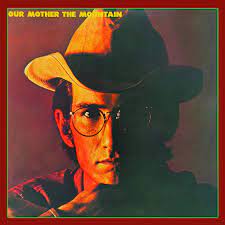
Don't Take It Too Bad was released on Van Zandt's third studio album, "Our Mother the Mountain," in 1969.
The song is sad and thoughtful song which comes from his heart. The lyrics talk about how life can be hard sometimes, but we should keep going even when things are tough. The song makes you feel like it's okay to be sad and that you're not alone. Townes Van Zandt was really good at writing songs that make you feel things, like love and loss, and this one is just like that.
Despite its sorrowful tone, "Don't Take It Too Bad" has been widely regarded as a classic among Van Zandt's fans and fellow musicians alike. It has been covered by various artists, further cementing its status as a beloved folk song.
Jump To Top
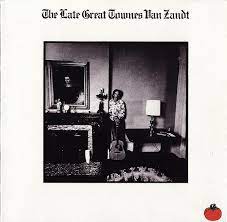
If I Needed You is a popular and widely recognized song by Townes Van Zandt which was originally released on his 1972 album "The Late Great Townes Van Zandt." It has since been covered by numerous artists, becoming one of Van Zandt's most lasting and cherished compositions.
"If I Needed You" is a tender and heartfelt love song that
showcases Van Zandt's poetic songwriting and soulful vocals.
Lyrically, "If I Needed You" expresses themes of love, companionship, and dependency. The lyrics depict a deep emotional connection between two individuals who rely on each other for support and comfort. Van Zandt's lyrics are rich in imagery and evoke a sense of intimacy and vulnerability, drawing the listener into the heartfelt sentiment of the song.
"If I Needed You" has been covered by many artists, including Emmylou Harris, Don Williams, and Lyle Lovett, among others.
Jump To Top
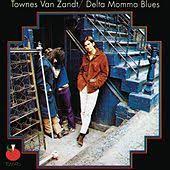
Snake Mountain Blues appears on his second studio album, "Delta Momma Blues," which was released in 1971.
"Snake Mountain Blues" is a bluesy folk song that showcases Van Zandt's intricate fingerpicking guitar style and distinctive vocal delivery. The lyrics of the song paint a vivid picture of a desolate landscape and convey a sense of loneliness and longing.
The song's title, "Snake Mountain Blues," refers to Snake Mountain, a prominent peak in Vermont, USA, known for its rugged and remote wilderness. Van Zandt's lyrics evoke a sense of isolation and yearning, drawing on the scenes of nature to explore complex emotions.
"Snake Mountain Blues" is considered a classic among Townes Van Zandt's body of work and is beloved by his fans for its haunting melodies, poetic lyrics, and emotive performance. The song has been covered by various artists.
Jump To Top
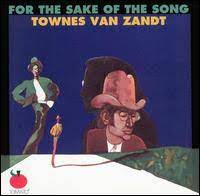
Tecumseh Valley was written by Townes Van Zandt,appears on his debut studio album, "For the Sake of the Song," which was released in 1968.
Tecumseh Valley tells the story of a young woman living in poverty in the impoverished Tecumseh Valley region of Ohio. Van Zandt's lyrics vividly portray the struggles and hardships faced by the woman, including poverty, addiction, and societal neglect.
The song's bittersweet lyrics are accompanied by Van Zandt's smooth vocals and acoustic guitar, showcasing his heartfelt storytelling and songwriting skills.
The song was never released as a single.
Jump To Top
Thank you for visiting my folk songs with chords page and I hope the info you found here and the subsequent sections below this one, helpful.
If you liked these folk songs you might also like ... (click images)
Fun Folk Songs To Sing
